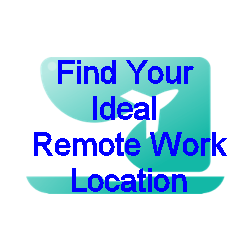The media tends to spend a lot of time on clickbait headlines around office vs remote, but what is remote work? Is it a destination or a journey? Years ago George Carlin had a comedy routine about a piece of mystery food in the back of his refrigerator. “Could be meat, could be cake.” People are looking at remote work the same way. Is it a result or a means to an end? Fran Saele had some great insights from Allstate’s CHRO, Robert Toohey who said, “We don’t know what the new way is ultimately going to be. I think as long as we stay flexible, test, learn, move with it, and have a good partnership between the employer and employee, we’ll have a great outcome.”
Some pieces of the remote work puzzle are solidifying, but most of those are just foundational. For a lot of people, remote work is its own thing. It gives some more focused time and flexibility and makes us feel better about our carbon footprint, but otherwise not life-changing. For others, remote work is a gateway drug. It enables not only a new way of working but a new way of living.
Remote Work as a Destination
Permanent Remote Positions
Many companies now offer permanent remote positions, allowing employees to choose where they want to work. There have been a few examples of CEOs back peddling on this, but for many, the structure is solidifying. Companies are building their work processes and policies around remote work and adapting their hiring to embrace a global workforce. Many have adopted full or fractional heads of remote to make things work smoothly.
The Future of Workspaces
The concept of a traditional office as the primary workspace is evolving. Remote work has prompted a reevaluation of the need for physical office spaces, leading to creative alternatives and new ways of defining work environments. The cement isn’t dry in this area yet, but you can see trends emerging. With the implosion of Wework, I think it’s going to be another 2 years before the dust clears in major cities. Meanwhile look for companies like LiquidSpace, Radious, and others to set the new standard.
Impact on Traditional Office Setups
As remote work gains prominence, traditional office setups will see a decline. Companies are rethinking the need for large office spaces and exploring hybrid models that combine remote and in-office work. Companies that are renewing leases are generally downsizing substantially. The space makeup is also generally different. More collaboration spaces and fewer full-time desks. Companies like Rekreate are helping to redesign spaces to match the current needs.
Also, some office space simply won’t be office space anymore. It could become residential, retail, studios, medical, entertainment, etc. Commercial real estate professionals need to start thinking of it differently since the demand for office space isn’t what it was 4 years ago.
The Journey of Remote Work
Adaptation and Transition
The shift to remote work represents a journey for both employees and employers. It involves adapting to new technologies, redefining workflows, and transitioning from traditional office norms to a more flexible and dynamic approach. For some companies like PwC and Yelp, this was a fairly quick transition. They already had remote work as part of their DNA and this just brought them across the finish line. For other companies like Allstate, they are adjusting as they go. Most companies need to take this more measured approach because they need to relearn a lot of what they take for granted.
Changing Work Culture
Remote work necessitates a shift in organizational culture. Companies embracing remote work need to foster a culture that values communication, collaboration, and individual responsibility. That seems like an automatic checkbox for most CEOs, but reality doesn’t always match what many leaders think is happening in their organizations. Assume nothing. Remote and hybrid work will change company culture and it requires intentional effort to build the new model.
Challenges Faced by Companies and Employees
This journey is not without its challenges. Companies must navigate issues like maintaining team cohesion, addressing communication gaps, and ensuring equitable treatment for remote and in-office employees. Many people still assume the rules of the office just need to apply to everyone. It doesn’t work. It creates stress and conflict not to mention retention and acquisition problems. There are lessons we can carry forward from our past experiences, but otherwise, we need to start fresh and unlearn much of what we are used to.
The Future of Living
For most people, remote work is an extension of something old, but for many, it will be the start of something new. It’s not just the freedom to work when and where people want, in many cases, it’s a new way of living. Cities will reorganize around many mixed-use centers as opposed to functional districts. The concept of a central business district is likely to disappear from most cities. We will return to more of a polycentric plan approach similar to what most cities were before WW2. Smaller towns will have more of an 18th-century community feel, except with the benefit of high-speed internet. Maybe we will finally have flying cars as well.
And most important, we will be able to establish connections and find out tribes in ways that we never could before. We will meet more people online and not in a swipe right/left type of way. We will be making real connections that lead to in-person interactions. We will travel not to just be tourists, but to be part of the communities of the people we interact with online.



